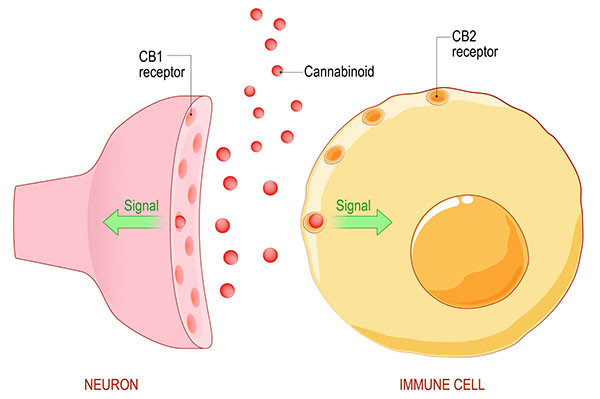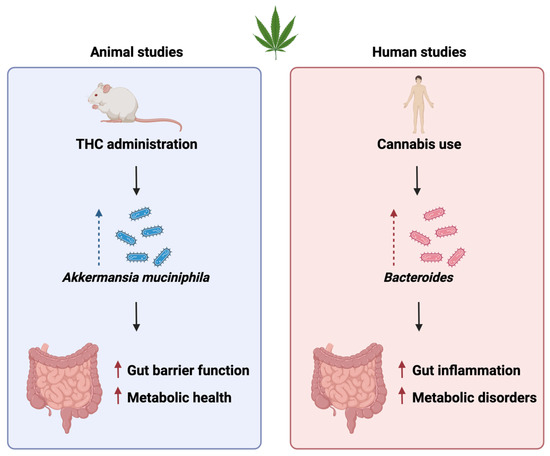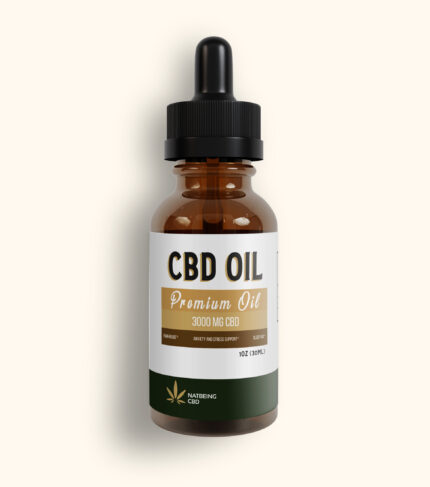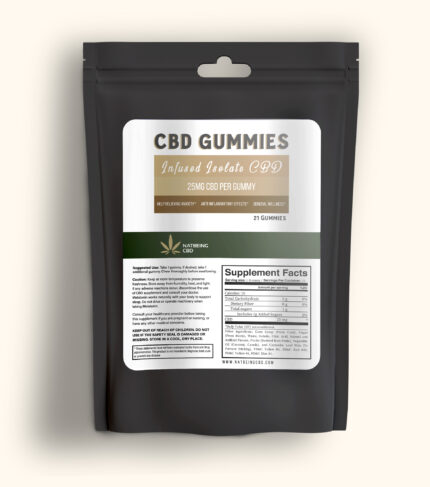
Blog
The gut does more than digest food. It plays a crucial role in overall health.
Cannabinoids, found in cannabis plants, may impact gut health significantly. Interest in their role in gut wellness is growing rapidly. Scientists and health enthusiasts alike are exploring how these compounds interact with the digestive system. Cannabinoids interact with our body’s endocannabinoid system, which influences many bodily functions.
This system helps maintain balance in the gut. Some studies suggest cannabinoids might reduce inflammation in the gut. They may also aid in managing conditions like irritable bowel syndrome. Understanding the potential benefits of cannabinoids can lead to better gut health strategies. This blog will explore how these natural compounds could support digestive health and overall well-being.
Cannabinoids And The Endocannabinoid System
Cannabinoids interact with the endocannabinoid system to support gut health. They help manage inflammation and balance gut bacteria. This can improve digestion and overall wellness.
Cannabinoids, the active compounds found in cannabis, have been gaining attention for their potential benefits on gut health. At the heart of this relationship is the endocannabinoid system, a complex network within your body that plays a crucial role in maintaining balance. Understanding how cannabinoids interact with this system could be key to improving your digestive well-being.
Key Components
Your endocannabinoid system is made up of receptors, enzymes, and endocannabinoids. These components work together like a finely tuned orchestra. Receptors, known as CB1 and CB2, are scattered throughout your body, including your gut. When cannabinoids bind to these receptors, they influence various functions, from mood to digestion. Endocannabinoids, your body’s natural cannabinoids, help regulate these processes. Imagine them as messengers that ensure communication flows smoothly. Enzymes, meanwhile, break down endocannabinoids when they’re no longer needed. This balance is essential for optimal gut function.
Function In The Body
The endocannabinoid system is like your body’s internal peacekeeper. It helps maintain homeostasis, or balance, across bodily functions. In your gut, this system can influence digestion, inflammation, and even your gut-brain connection. Think about when you’re stressed, and your stomach starts acting up. Your endocannabinoid system responds by trying to calm things down, potentially easing symptoms. This is why some people find relief from digestive issues through cannabinoid use. Have you ever noticed how your mood affects your digestion? The gut-brain connection is powerful, and cannabinoids may play a role here. By interacting with your endocannabinoid system, they might help manage the symptoms associated with stress and gut discomfort. Cannabinoids and the endocannabinoid system offer intriguing possibilities for enhancing gut health. As research continues, consider how this interaction might be a game-changer for your digestive well-being. Could cannabinoids be the missing piece in your gut health puzzle?

Credit: www.health.harvard.edu
Introduction To Gut Health
Gut health is a topic gaining attention in today’s wellness-focused world. It’s more than just digestion—your gut impacts your mood, immunity, and overall health. Understanding its role can empower you to make informed choices for a healthier life.
Importance Of A Healthy Gut
A healthy gut is like the foundation of a house. It supports everything above it. When your gut is functioning well, it absorbs nutrients efficiently and keeps harmful bacteria in check. This balance is crucial for maintaining energy levels and a strong immune system.
Have you ever noticed feeling sluggish or moody after a heavy meal? That’s your gut speaking. It plays a role in producing serotonin, a chemical linked to happiness. A healthy gut can improve your mood and mental clarity.
Think about how you choose foods. Are they nourishing your gut or just filling your stomach? Eating fiber-rich foods, like fruits and vegetables, can promote a diverse gut microbiome. This diversity is key to resilience against illnesses.
Common Gut Health Issues
Many people face gut health challenges daily. Bloating, constipation, and diarrhea are common discomforts. These can be signs of an imbalance in gut bacteria or poor dietary choices.
Ever had a gut feeling about something? It’s not just a saying. Your gut is often referred to as your “second brain.” When it’s off, you might notice brain fog or irritability. Addressing gut issues can bring clarity and comfort.
Are you aware of your gut’s signals? Sometimes, it’s easy to ignore mild symptoms until they become severe. Pay attention to changes in your digestion and energy levels. Simple tweaks in your diet can prevent these issues from escalating.
Engage with your gut health actively. What changes can you make today for a happier gut? Listen to your body’s cues and respond with kindness and care.
Cannabinoids Impact On Gut Function
Cannabinoids play a crucial role in the gut. They interact with the body’s systems. This interaction affects gut function significantly. The gut houses many receptors. Cannabinoids influence these receptors. This can lead to changes in digestion. Understanding this impact helps in gut health management.
Interaction With Gut Receptors
Gut receptors are vital for gut health. Cannabinoids target these receptors. This affects how the gut responds to food. Cannabinoid receptors, like CB1 and CB2, are present in the gut. They help regulate gut functions. This includes motility and inflammation. Cannabinoids can bind to these receptors. This binding can enhance or reduce gut activity. The result is a balanced digestive process.
Influence On Digestion
Digestion is a complex process. Cannabinoids can aid digestion. They can reduce gut inflammation. This leads to better nutrient absorption. Cannabinoids can also help manage gut pain. This makes the digestive process more comfortable. By balancing gut activity, cannabinoids support overall gut health.
Cannabinoids And Inflammation
Cannabinoids have gained attention for their role in gut health. They play a significant part in managing inflammation. Inflammation in the gut can lead to discomfort and diseases. Cannabinoids interact with the body’s endocannabinoid system. This interaction can help reduce inflammation effectively.
Mechanism In Reducing Inflammation
Cannabinoids bind to receptors in the endocannabinoid system. This system helps regulate immune responses. By binding, cannabinoids can reduce the production of inflammatory molecules. They achieve this by affecting cytokines, which are proteins that signal inflammation. This action helps calm the immune system’s overreaction.
Cannabinoids also promote the release of anti-inflammatory proteins. These proteins work to soothe inflammation further. The reduction in inflammatory molecules leads to less gut irritation. This calming effect can improve overall gut health.
Effects On Inflammatory Gut Diseases
Inflammatory gut diseases include Crohn’s disease and ulcerative colitis. These conditions cause severe inflammation in the digestive tract. Cannabinoids have shown promise in managing these diseases. Patients report reduced symptoms and improved quality of life.
Their anti-inflammatory properties help decrease pain and discomfort. Cannabinoids aid in slowing disease progression. This can lead to fewer flare-ups and hospital visits. They also help improve appetite and nutrient absorption. Improved nutrition contributes to better overall health.
Research continues to explore cannabinoids’ potential in gut health. Early findings are encouraging. They suggest a valuable role for cannabinoids in managing gut inflammation.
Potential Benefits For Gut Disorders
Cannabinoids show promise in supporting gut health. They interact with the body’s endocannabinoid system. This system plays a role in regulating digestive processes. For those with gut disorders, cannabinoids might offer relief. Let’s explore some specific conditions.
Irritable Bowel Syndrome (ibs)
IBS affects millions worldwide. Symptoms include stomach pain, bloating, and irregular bowel habits. Cannabinoids may help by reducing inflammation. They also work to ease pain and discomfort. Many people with IBS report relief using cannabinoids.
Crohn’s Disease And Ulcerative Colitis
Crohn’s Disease and Ulcerative Colitis are forms of inflammatory bowel disease. These conditions cause severe gut inflammation. Cannabinoids might help reduce this inflammation. They may also improve overall gut health. Patients often experience fewer symptoms and better quality of life.

Credit: hempstreet.in
Cannabinoids And Microbiome Balance
Cannabinoids play a crucial role in maintaining gut health by influencing the balance of the microbiome. These compounds interact with the body’s endocannabinoid system, supporting digestive functions and promoting a healthy gut environment. Understanding this connection helps improve overall well-being.
The gut is a complex ecosystem bustling with trillions of bacteria, all working to keep your digestive system in harmony. Cannabinoids, the natural compounds found in cannabis, are gaining attention for their potential to impact gut health, particularly by balancing the microbiome. The relationship between cannabinoids and your gut’s microbiome might hold the key to improved digestion and overall health. Let’s dive into how cannabinoids interact with the gut bacteria and their role in promoting diversity.
Effects On Gut Bacteria
Cannabinoids can influence the composition of gut bacteria. They have been shown to encourage the growth of beneficial bacteria while inhibiting harmful ones. This balance can lead to improved digestion and reduced inflammation. Imagine your gut as a garden. Just as certain plants can support or choke out others, cannabinoids help maintain a healthy bacterial environment. This balance might be the missing piece in managing digestive issues like IBS or Crohn’s disease. Have you ever felt that your gut just isn’t right? Introducing cannabinoids might be a step worth considering. Their potential to positively alter gut bacteria could bring the relief you’re seeking.
Role In Promoting Diversity
Diversity in your gut microbiome is crucial. A diverse microbiome is like a robust ecosystem, resilient and adaptable to changes. Cannabinoids may play a role in promoting this diversity, supporting a wide array of bacterial species. A study highlighted that individuals using cannabinoids showed a richer variety of gut bacteria. This variety is linked to better health outcomes and increased resistance to infections and diseases. Are you looking to enhance your gut health naturally? Cannabinoids could be the answer. By fostering a diverse microbiome, you can support your body’s ability to handle stress, infections, and even mental health challenges. Understanding the relationship between cannabinoids and your gut might just transform your approach to health. Have you considered how these compounds could support your digestive wellness? The potential benefits are worth exploring as you strive for a healthier, balanced life.
Research And Clinical Studies
Research into cannabinoids has unveiled their potential benefits for gut health. Scientists explore how these compounds interact with the digestive system. Clinical studies show promising results in understanding this relationship.
Current Findings
Current studies highlight cannabinoids’ role in reducing gut inflammation. They interact with the endocannabinoid system, which plays a crucial role. This system helps regulate the gut environment and maintain balance. Cannabinoids may ease symptoms for those with inflammatory bowel diseases.
Other research shows cannabinoids’ potential in managing gastrointestinal disorders. They may help relieve symptoms like pain, nausea, and diarrhea. These findings open new possibilities for those with chronic gut issues.
Future Research Directions
Future research aims to explore cannabinoids’ full potential in gut health. Scientists plan to focus on specific cannabinoids and their unique effects. Understanding how each compound works may lead to targeted treatments.
Another area of interest is the long-term impact of cannabinoids. Researchers want to ensure safety and effectiveness for prolonged use. Studies will also investigate the interaction between cannabinoids and other gut-related treatments.
The goal is to develop therapies that improve the quality of life. As research progresses, more insights into cannabinoids’ role in gut health will emerge.
Safety And Side Effects
Cannabinoids may offer benefits for gut health, yet awareness of potential side effects is crucial. Some individuals may experience mild symptoms like dizziness or dry mouth. Consulting a healthcare professional ensures safe use, tailored to personal health needs.
Cannabinoids have been gaining attention for their potential role in gut health, but it’s crucial to understand the safety and side effects associated with their use. While some people experience benefits, others may encounter risks. Knowing these can help you make informed decisions about using cannabinoids for gut health.
Potential Risks
Cannabinoids can have varying effects depending on your individual health condition and dosage. Some users report mild side effects like dry mouth or dizziness. However, more severe risks such as dependency or mood changes have been noted in some cases. Imagine trying a new supplement only to find it interacts poorly with medications you’re already taking. It’s essential to consult with your healthcare provider to minimize risks.
Considerations For Use
Before you consider using cannabinoids, think about your current health situation. Are you on medications that could interact negatively? Keep in mind that everyone’s body reacts differently. What works for someone else might not work for you. A friend of mine tried cannabinoids for gut health and ended up feeling more anxious. This highlights the importance of monitoring your own reactions closely. How can you ensure safety when trying cannabinoids for gut health? Start with a small dose and gradually increase as needed. As you explore options for improving gut health, it’s wise to weigh the potential benefits against the risks. Are the side effects manageable for you? Your health decisions are deeply personal, and understanding the nuances of cannabinoids can empower you to make choices that align with your wellness goals.
Legal And Regulatory Aspects
Exploring cannabinoids for gut health involves navigating complex legal landscapes. Different countries have varied regulations on cannabinoid use. Understanding these laws is crucial for safe and legal application.
Understanding the legal and regulatory aspects of cannabinoids in gut health is crucial for anyone interested in this burgeoning field. The varying global legal status and regulatory challenges present significant hurdles and opportunities. Let’s dive into these aspects to see how they shape the future of cannabinoids in gut health.
Global Legal Status
The legal status of cannabinoids varies widely across the globe. In countries like Canada and Uruguay, cannabis is fully legal, opening doors for extensive research and development. Meanwhile, in places like the United States, legality fluctuates from state to state, creating a patchwork of regulations. In some European countries, only medical cannabis is permitted, while recreational use remains illegal. This disparity affects the availability of cannabinoid-based products for gut health. Consider how this impacts your access to potential treatments or supplements.
Regulation Challenges
Navigating the regulatory landscape of cannabinoids is no small feat. Many governments have stringent rules that can stifle innovation and limit research. This creates a barrier for scientists and companies looking to explore cannabinoids’ potential for gut health. Inconsistent labeling and quality standards present another challenge. Consumers might struggle to find reliable information on product efficacy and safety. Have you ever felt uncertain about the quality of a cannabinoid product? Regulatory hurdles can also impact pricing and availability. When products are scarce or expensive, it limits who can access potential gut health benefits. How does this affect your willingness to try cannabinoid-based solutions? By understanding these legal and regulatory aspects, you can better navigate the world of cannabinoids and make informed decisions about your gut health.

Credit: www.mdpi.com
Integrating Cannabinoids For Gut Health
Integrating cannabinoids for gut health offers promising benefits. Cannabinoids may help reduce inflammation in the digestive tract. They can also aid in regulating appetite and digestion. Understanding how to use them effectively is crucial. This section explores guidelines for use and the importance of consulting healthcare providers.
Guidelines For Use
Start with a low dose. Monitor how your body responds. Increase the dose gradually if needed. Choose products wisely. Opt for high-quality cannabinoid products. Check labels for purity and strength. Consider the form of cannabinoids you prefer. Options include oils, capsules, and gummies. Each form has unique benefits.
Consultation With Healthcare Providers
Talk to your doctor before starting cannabinoid use. Discuss your health history. Mention any medications you take. Your doctor can offer advice on safe use. They may also recommend specific products. They can monitor your progress. This ensures a safe and beneficial experience.
Frequently Asked Questions
What Cannabinoid Is Best For Gut Health?
CBD is often considered the best cannabinoid for gut health. It may reduce inflammation and support digestive balance. Many users report improved gut function with CBD. Always consult a healthcare professional before starting any supplement for gut health.
What Does Cbd Do To Your Gut?
CBD may help improve gut health by reducing inflammation and promoting a balanced microbiome. It can aid digestion and alleviate symptoms of conditions like IBS. Always consult a healthcare professional before using CBD for gut issues.
How Do Cannabinoids Reduce Inflammation?
Cannabinoids reduce inflammation by interacting with the body’s endocannabinoid system. They block inflammatory cell signals and modulate immune responses. This helps decrease swelling, pain, and tissue damage effectively.
What Organ Is Affected By Cannabinoids?
Cannabinoids primarily affect the brain, interacting with the endocannabinoid system. They influence mood, memory, and pain perception. Cannabinoids can also impact other organs like the liver and lungs. Their effects depend on the specific cannabinoid and its method of consumption.
Always consult a healthcare professional for personalized advice.
Conclusion
Cannabinoids have a positive impact on gut health. They interact with the body’s endocannabinoid system. This system plays a vital role in digestion. It helps reduce inflammation and pain. This can lead to improved gut function. Many find relief from digestive issues.
Research continues to explore these benefits. It’s important to consult a doctor before trying cannabinoids. Each individual may react differently. Understanding your body is key. Stay informed and make safe choices for your health.
Contents
- 1 Cannabinoids And The Endocannabinoid System
- 2 Introduction To Gut Health
- 3 Cannabinoids Impact On Gut Function
- 4 Cannabinoids And Inflammation
- 5 Potential Benefits For Gut Disorders
- 6 Cannabinoids And Microbiome Balance
- 7 Research And Clinical Studies
- 8 Safety And Side Effects
- 9 Legal And Regulatory Aspects
- 10 Integrating Cannabinoids For Gut Health
- 11 Frequently Asked Questions
- 12 Conclusion
Related posts
How Fast Does CBD Cream 5000mg Work on Sore Muscles?
Menthol and CBD: A Dynamic Duo for Pain Relief
Delta-8 vs Delta-9 THC: Which One Is Right for You?
CBD Cream 5000mg: Powerful Relief for Pain, Muscles & Joints
CBD for Arthritis Pain: What You Should Know
CBD Creams: Made with Hemp Oil for Pain Relief & Joint Support
Understanding Oral CBD vs Topical CBD: Which Works Best for You?
How CBD Cream Supports Your Body’s Natural Balance
CBD Cream for Arthritis Joint Pain: A Natural Way to Find Relief
Is CBD Cream the Secret to Glowing, Healthy Skin?
How CBD Cream Works on Your Skin
CBD Cream Costs: Finding the Perfect Balance Between Price and Quality
Table Of Contents
- 1 Cannabinoids And The Endocannabinoid System
- 2 Introduction To Gut Health
- 3 Cannabinoids Impact On Gut Function
- 4 Cannabinoids And Inflammation
- 5 Potential Benefits For Gut Disorders
- 6 Cannabinoids And Microbiome Balance
- 7 Research And Clinical Studies
- 8 Safety And Side Effects
- 9 Legal And Regulatory Aspects
- 10 Integrating Cannabinoids For Gut Health
- 11 Frequently Asked Questions
- 12 Conclusion
Recent Posts
Products
-
 CBD Cream 5000mg – Extra Strength Pain Relief Topical Rated 4.83 out of 5$33.93 – $49.99Price range: $33.93 through $49.99 — or subscribe and save up to 25%
CBD Cream 5000mg – Extra Strength Pain Relief Topical Rated 4.83 out of 5$33.93 – $49.99Price range: $33.93 through $49.99 — or subscribe and save up to 25% -
 CBD Sleep Gummies 2500mg With Melatonin - 100 count Rated 5.00 out of 5
CBD Sleep Gummies 2500mg With Melatonin - 100 count Rated 5.00 out of 5$69.99Original price was: $69.99.$34.99Current price is: $34.99. -
 3000mg CBD Oil Rated 5.00 out of 5$29.90
3000mg CBD Oil Rated 5.00 out of 5$29.90 -
 CBD Gummies 500 mg - 21 Gummies Rated 5.00 out of 5$19.90 – $23.00Price range: $19.90 through $23.00
CBD Gummies 500 mg - 21 Gummies Rated 5.00 out of 5$19.90 – $23.00Price range: $19.90 through $23.00


















